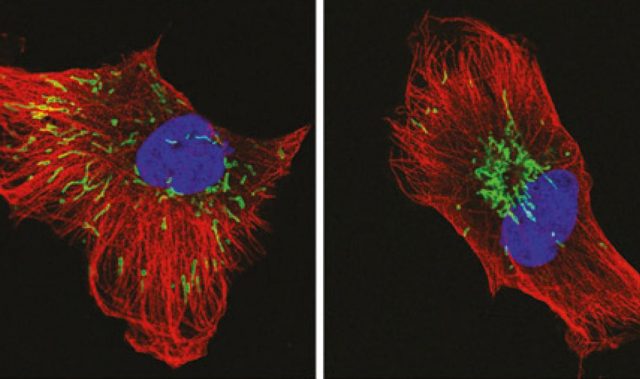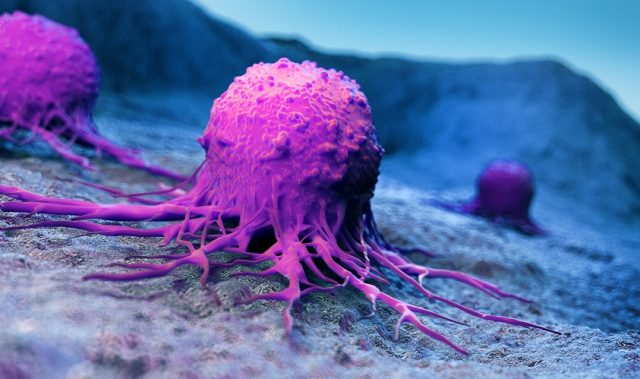
AsianScientist (May 25, 2017) – In a study published in Nature Cell Biology, researchers have found that metabolic changes give pre-cancerous cells away, causing healthy cells around them to force them out.
Most cancers begin when one or more genes in a cell mutate. These newly transformed cells get extruded and eliminated after losing a competition against the surrounding normal cells in the epithelium, or the outer layer of the body. However, the mechanism by which normal cells recognize and attack the transformed cells remains elusive.
A research team led by Professor Yasuyuki Fujita of Hokkaido University’s Institute for Genetic Medicine explored this natural defense mechanism using cultured mammalian cells and a mouse model. The study uncovered two metabolic changes occurring in the newly transformed cells: mitochondrial dysfunction and an elevated glucose uptake.
These two changes were significant only when the transformed cells were surrounded by normal epithelial cells, indicating that the changes are induced by the normal cells. Furthermore, the metabolic changes play an important role in eliminating the transformed cells.
Interestingly, these metabolic changes are similar to the Warburg effect, where cancerous cells in the middle and latter stages of cancer switch from pyruvate to lactic acid as an energy source. The Warburg effect is generally thought to play tumor-promoting roles whereas the newly discovered metabolic changes could suppress cancer in its initial stage.
“Although these two processes have similar metabolic alterations—mitochondrial downregulation and increased glycolysis—they are governed by distinct regulators and have opposing effects on the development of cancer,” said Fujita.
Their findings shed new light on the inherent ability of normal cells to eliminate cancerous cells and opens up potential avenues for cancer prevention.
“Considering that the metabolic changes could either suppress or promote cancer cells depending on the stage, further elucidation of the mechanism is essential to help develop cancer prevention drugs while avoiding adverse effects,” Fujita said.
The article can be found at: Kon et al. (2017) Cell Competition with Normal Epithelial Cells Promotes Apical Extrusion of Transformed Cells Through Metabolic Changes.
———
Source: Hokkaido University.
Disclaimer: This article does not necessarily reflect the views of AsianScientist or its staff.












